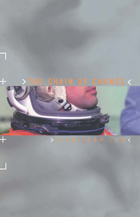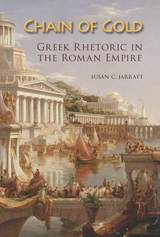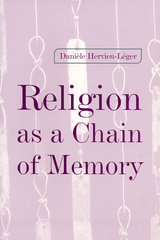
Breaks in the Chain shows how immigrant workers-individually and sometimes collectively-both reinforce and contest a tacit but lethal form of biopolitics that differentiates the life chances of racial groups. Examining their personal narratives, Apostolidis recasts our understanding of the ways immigrants construct and transform social power.
Apostolidis uses empirical inquiry to spark new reflections in critical theory as he analyzes how immigrant workers' local practices confront structural power within and beyond America's borders. Linking stories of immigration to stories about working on the meat production line-the chain-he reveals the surprising power of activism by immigrant workers and their allies and demonstrates how it can-and should-promote social and political democracy in America.

"Tom Sleigh's precision marks him as the diamond cutter of poetry; his verse has a tense musicality, and his ability to convey exact emotions, even the state of consciousness itself, is unerring."—The New York Times Book Review, Notable Books of the Year, 1990-1991

On a trail leading across Europe, the ex-astronaut barely escapes numerous attempts on his life. Having set himself up as a potential victim, he realizes that he may now be the target of a conspiracy--and that the conspiracy is not the work of a criminal mind, but a manifestation of the laws of nature. Certain patterns have begun to emerge from the chaos of modern society. Some of those patterns can be fatal. . .

Of his friend of many years, Dr. John Fothergill, Benjamin Franklin wrote: "I can hardly conceive that a better man has ever existed." Fothergill's letters provide a fascinating perspective of his time--a totally different view from that given by his contemporaries Horace Walpole and Dr. Johnson.
The "Quaker internationalist" (as his editors aptly call him) was during the middle decades of the eighteenth century one of the half dozen leading physicians of London, a horticulturist of great distinction, an educational reformer, a patron of many philanthropic causes, and a tireless friend of Americans and the cause of American rights. He was exceedingly generous as a patron of scientific undertakings and of young Americans abroad. He founded a famous Quaker school for boys and girls which is still flourishing; he helped found various benevolent and educational institutions in America and he continually subsidized worthy books and gave them to worthy recipients.
All these activities and others are recorded in the some two hundred letters here selected for publication. They throw light on Quaker history on both sides of the Atlantic, on advances in medical science and institutional care of the sick, on discoveries in natural history, and on political developments from the Jacobite Rebellion through the American Revolution. From the beginnings of the rift between colonies and mother country, Fothergill served as a vigorous advocate of conciliatory measures and commonwealth status for America, speaking with equal frankness and impartiality to leaders on both sides until well after hostilities began.
A few weeks before he died (at the end of 1780), he wrote Franklin in France to say that with all Europe leagued against England nothing could be hoped for her from this war, but that the world might hope for the establishment of a tribunal to settle disputes among nations and preclude war as an instrument of policy.
This edition includes a substantial introduction, and the letters have been annotated with great skill and authority. Lyman Butterfield, well known editor of the Adams Papers, says, "I have never encountered annotation on bibliographical, biographical, medical, botanical, and topographical matters that is more unfailingly readable per se. The transatlantic combination of editors was obviously just right. Toward understanding one prominent strand in the cultural history of the 18th century, this book is a uniquely valuable contribution."

Through allusions to classical Greek literature, sophists such as Dio Chrysostom, Aelius Aristides, and Philostratus slipped oblique challenges to empire into otherwise innocuous works. Such figures protected their creators from the danger of direct confrontation but nonetheless would have been recognized by elite audiences, Roman and Greek alike, by virtue of their common education. Focusing on such moments, Jarratt presents close readings of city encomia, biography, and texts in hybrid genres from key second sophistic figures, setting each in its geographical context. Although all the authors considered are male, the analyses here bring to light reflections on gender, ethnicity, skin color, language differences, and sexuality, revealing an underrecognized diversity in the rhetorical activity of this period.
While US scholars of ancient rhetoric have focused largely on the pedagogical, Jarratt brings a geopolitical lens to her study of the subject. Her inclusion of fourth-century texts—the Greek novel Ethiopian Story, by Heliodorus, and the political orations of Libanius of Antioch—extends the temporal boundary of the period. She concludes with speculations about the pressures brought to bear on sophistic political subjectivity by the rise of Christianity and with ruminations on a third sophistic in ancient and contemporary eras of empire.

For most of the last twenty years, sociologists have studied the “decline” of religion in the modern world—a decline they saw as a defining feature of modernity, which promotes materialism over spirituality. The revival and political strength of varying religious traditions around the world, however, has forced sociologists to reconsider.
This paradox has led Hervieu-Léger to undertake a sociological redefinition and reexamination of religion. For religion to endure in the modern world, she finds, it must have deep roots in traditions and times in which it was not defined as irrelevant. This reasoning leads her to develop the concept of a “chain of memory”—a process by which individual believers become members of a community that links past, present, and future members. Thus, like cultural tradition, religion may be understood as a shared understanding with a collective memory that enables it to draw upon the deep well of its past for nourishment in the increasingly secular present.
Hervieu-Legér also argues that the modern secular societies of the West have not, as is commonly assumed, outgrown or found secular substitutes for religious traditions; nor are they more “rational” than past societies. Rather, modern societies have become “amnesiacs,” no longer able to maintain the chain of memory that binds them to their religious pasts. Ironically, however, even as the modern world is destroying and losing touch with its traditional religious bases, it is also creating the need for a spiritual life and is thus opening up a space that only religion can fill.
READERS
Browse our collection.
PUBLISHERS
See BiblioVault's publisher services.
STUDENT SERVICES
Files for college accessibility offices.
UChicago Accessibility Resources
home | accessibility | search | about | contact us
BiblioVault ® 2001 - 2024
The University of Chicago Press









